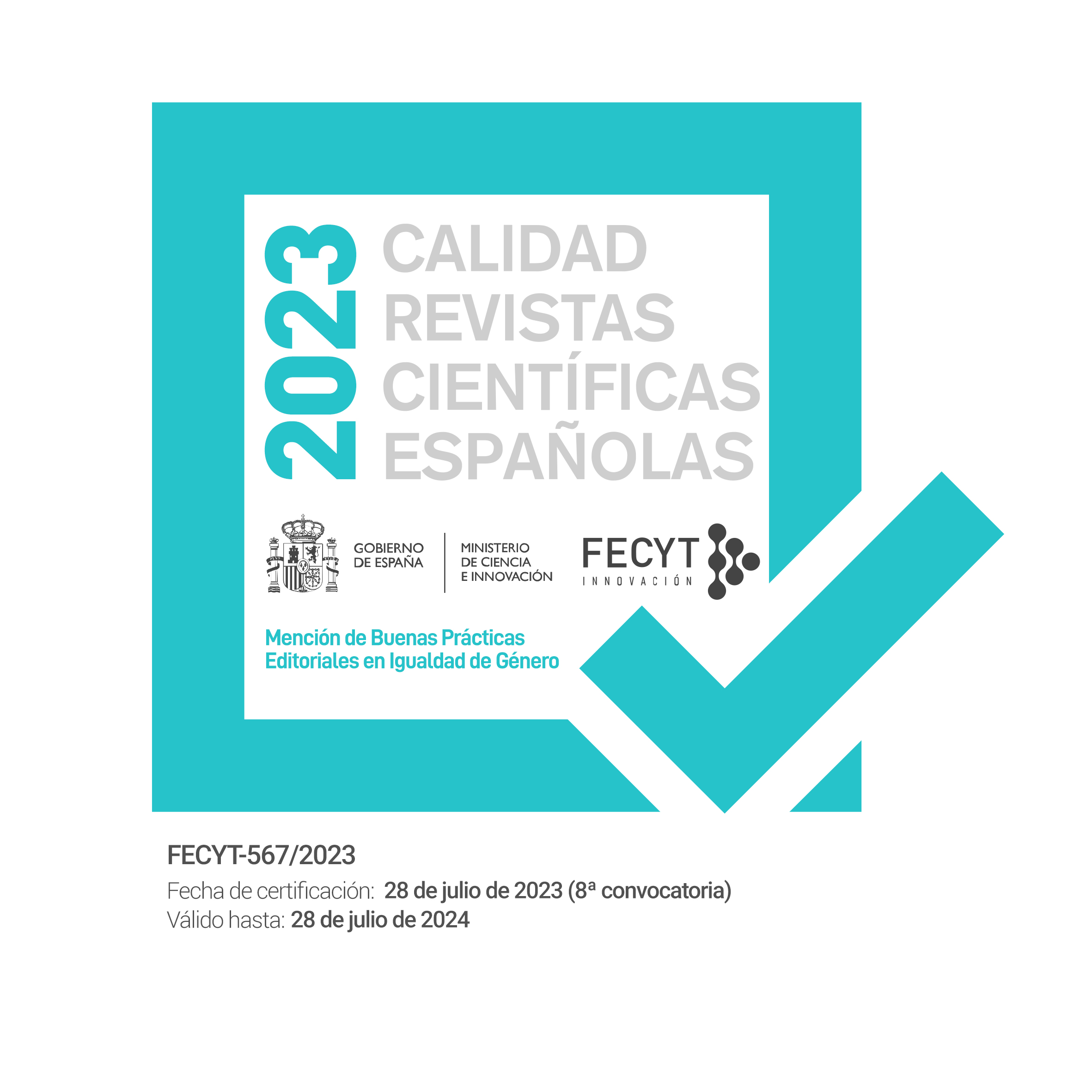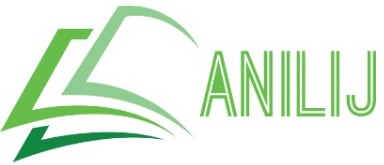About the Journal
AIMS AND SCOPE
Anuario de Investigación en Literatura Infantil y Juvenil (AILIJ) is published by ANILIJ (Spanish Association of Research in Children's Literature.) The headquaters of this association is in the Faculty of Philology and Translation (University of Vigo, Spain). The journal is published on-line by the Publications Service of the University of Vigo. The journal was awarded Sello calidad Fecyt 2023 (Spanish quality seal for research journals).
Published for the first time in 2001, Anuario de Investigación en Literatura Infantil and Juvenil aims at disseminating the research that has been carried out in children's and young people's literature at a national and international level. AILIJ promotes interdisciplinary research, providing a reflection forum on all issues that connect children's literature with society and culture. AILIJ admits unpublished works (articles and reviews) that deal with issues related to research in children's and young adult literature in all areas: didactics, education, translation, comparative literature, new theoretical approaches, philological studies, editorial policies, publishing, audiovisual media, new technologies, illustration, history, authors, etc.
OPEN ACCESS
Anuario de Investigación en Literatura Infantil y Juvenil is an Open Acess journal: its content is free for readers and institutions. Users can read, download, copy, disseminate, print, search and link the files without the author's or editor's permission whether the original source is mentioned, no commercial aims apply and licence Creative Commons Attribution-Noncommercial-No Derivative Works 4.0 (CC-BY-NC-ND) is referred to.
In addition, Anuario de Investigación en Literatura Infantil y Juvenil uses OAI-PMH (Open Access Intitiative-Protocol for Metadata Harvesting), which is based on Dublin Core, to describe the articles contents in order to export them easily to repositories and browsers.
PUBLICATION FREQUENCY
The journal will be published anually. The Editorial Board will decide the issue each article or review is to be published in.
ANTI PLAGIARISM POLICY
Anuario de Investigación en Literatura Infantil y Juvenil follows an anti plagiarism policy to guarantee that all articles have not been published before. Manuscripts are checked just after being submitted by using the tool Turnitin provided by the University of Vigo to identity not correct quotations or possible plagiarism. This tool provides a wide database including web pages, books, articles and journals.
DOUBLE BLIND PEER REVIEW
Anuario de Investigación en Literatura Infantil y Juvenil will notify the author(s) when receiving the manuscript. If it fits the scope of the journal, the manuscript will be sent to two experts (reviewer) following a double blind review policy. Referees will send a report to the Journal suggesting or rejecting the manuscript publication. The decision adopted should be: acceptance without modifications; acceptance with minor changes; major changes. The modified manuscript will be reviewed again; rejection. The authors will be informed of the decision and will receive the reviewers’ comments in order to revise their works if published.
Throughout the process, the editors of the journal will ensure compliance with the guidelines established by COPE (Committee on Publication Ethics): https://publicationethics.org/guidance/Guidelines to guarantee ethics in publication and the quality of the articles. Publishers will avoid any type of malpractice in the publishing process and the Editorial Ethics Resource Kit (PERK) https://www.elsevier.com/editors/perk
Editors are committed to ensuring that advertising, reprint or other commercial revenue has no impact or influence on editorial decisions, nor any issue concerning gender, race, religion, citizenship, etc.
Articles submitted for possible publication are subjected to a double-blind, peer review process. Editors will supervise all steps of the process ensuring both authors and referees are anonymous. The editors shall treat all manuscript submissions as confidential.
Editors must gurantee the quality of all contents, and check that the summary, and mainly the English abstract, are detailed enough to include the substance of the article in order to improve its impact after is publication.
No wages policies apply. Moreover, submission and publication fees are not charged.
Authors
Authors are responsible for their works; they are required to get permission for using any illustration, table, figure or text by any other author or source. Authors must follow the journal guidelines.
The authors should ensure that they have written entirely original works. Authors should not submit the same manuscript to another journal. Submission requires authors to confirm that the article has not been published elsewhere fully or partly.
If the authors have used the work and/or words of others in their manuscript, these must be appropriately cited or quoted. Plagiarism takes many forms, from ‘passing off’ another’s paper as the author’s own paper, to copying or paraphrasing substantial parts of another’s paper (without attribution), to claiming results from research conducted by others. Plagiarism in all its forms constitutes unethical publishing behaviour and is unacceptable.
Authors are required to revise their manuscripts before publication following the referees' recommendations.
If any author discovers a significant error or inaccuracy in the submitted manuscript, this fact must be reported to the editor immediately.
Peer reviewers
Peer reviewers shall analyse and assess the manuscript fairly and accurately. Like the editors, the peer reviewer shall not discriminate due to race, ethnic origin, gender, sexual orientation, religion, or political philosophy of the author, if such are known to the peer reviewer.
Any selected reviewer who feels unqualified to review the research reported in a manuscript should notify the editor and excuse him/herself from the review process.
Any manuscript must be treated as a confidential document.
Reviews should be conducted objectively. Reports must be objective. Personal criticism of the author is inappropriate. Reviewers should express their views clearly with supporting arguments. Special attention must be paid to English abstracts including the keys of the research.
Reviewers will be alert to missing citations to similar work, and will inform the authors and the editor.
Reviewers shall not share any of the manuscript materials or discuss the manuscript without permission of the editor. Reviewers may also not use unpublished manuscript materials for their own research without permission of the author
Reviewers should not consider manuscripts in which they have conflicts of interest resulting from competitive, collaborative, or other relationships or connections with any of the authors, companies or institutions involved in the submitted work. As a double blind peer review is applied, the editors will guarantee that referees do not know each other and do not know the authors.
If a reviewer cannot complete his or her review within the deadline originally agreed to with the editor, he or she shall inform the editor as soon as possible.
REVIEWER TEAM
Anuario de Investigación en Literatura Infantil y Juvenil relies on a team of national and international reviewers which is continually updated accounting for the scope of the submitted manuscripts. Reviewers are experts on their research field and will carry out an objective altruistic review of the scientific quality of the articles.
COPYRIGHT NOTE
Anuario de Investigación en Literatura Infantil y Juvenil has been published in open access from 2019 (volume 17). Issues 0-16 were printed, and the copy right belongs to the journal. From volume 17 the journal allows the authors to retain publishing rights. Authors may reprint their articles in other media without having to request authorization, provided they indicate that the article was originally published in Anuario de Investigación en Literatura Infantil y Juvenil.
The articles published at Anuario de Investigación en Literatura Infantil y Juvenil will have a Creative Commons Attribution-Noncommercial-No Derivative Works 4.0 licence.
Authors are highly recommended to disseminate their articles (by using repositories, personal web sites, etc.) after publication so as to improve the impact of their research.
Good Practices in Gender Equality
Anuario de Investigación adheres to the recommendations of FECYT and other platforms that ensure the quality of scientific journals in relation to "Best Practices in Gender Equality". Thus, since its origins, there has been a large percentage (always over 40%) of women in the different teams of the magazine. Likewise, there is also a percentage of more than 40% of women as reviewers of the papers sent to the journal. The editorial policy of the journal recommends the use of inclusive language in scientific articles. AILIJ always includes the full name of the authors of the papers it publishes, recording the original data of the research taking into account the genre,
in order to allow the identification of possible differences.
Research papers will try to avoid gender biases that use the masculine as a universal reference. In this sense, it is advisable to consult the manual Gender in research prepared by the European Commission.




